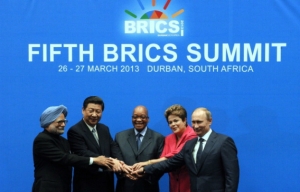An interesting story surfaced in the Huffington Post yesterday. It seems that Congress’ efforts to dictate the research funded by the National Science Foundation is not yet over. As the story notes, the House Science Committee is
making an unprecedented move to require oversight of the scientific research process, pushing a bill that would in effect politicize decisions made by the National Science Foundation… The bill, titled the High Quality Research Act and authored by [House Committee on Science, Space, and Technology Committee Chair Lamar] Smith, would require the director of the NSF to certify in writing that every grant handed out by the federal agency is for work that is ‘the finest quality, is ground breaking, and answers questions or solves problems that are of utmost importance to society at large; and … is not duplicative of other research project being funded by the Foundation or other Federal science agencies.’
Representative Eddie Bernice Johnson, who sits on the committee, fired back with his own letter to Smith.Johnson’s letter argues that,
Rather than entering into [a] dialogue, your letter marks the beginning of an investigative effort, the implications of which are profound. This is the first step on a path that would destroy the merit-based review process at NSF and intrudes political pressure into what is widely viewed as the most effective and creative process for awarding research funds in the world… Interventions in grant awards by political figures with agendas, biases, and no expertise is the antithesis of the peer review process. By making this request, you are sending a chilling message to the entire scientific community that peer review may always be trumped by political review. You also threaten to compromise the anonymity that is crucial to the grant and open exchange of comments and critiques during the review process, and in doing so, further comprise the integrity of the merit review process. How can future participants in the peer review process have confidence that their work will remain confidential with the Chairman of the Science, Space, and Technology Committee has shown that probing specific awards absent any allegation of wrong-doing may become the way business is done?
The debate raises several important issues around the role of public funding of research, the dangers of politicization of science, and the proper role of regulation in education and scientific research. But as a political scientist, it also makes me wonder why this debate did not occur two months ago, when Congress passed the Coburn Amendment limiting NSF funding for political science research. Reminds me a bit of the Martin Niemöller poem
First they came for the Socialists, and I did not speak out–Because I was not a Socialist.
Then they came for the Trade Unionists, and I did not speak out– Because I was not a Trade Unionist.
Then they came for the Jews, and I did not speak out– Because I was not a Jew.
Then they came for me–and there was no one left to speak for me.
Those wishing to write their respective Representative can find their contact information on the House’s Office of the Clerk Website.






You must be logged in to post a comment.